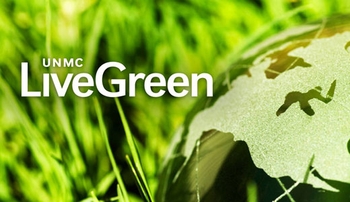For the past few months we’ve watched much of the rest of the country being buried up to the eyeballs in snow, and I have felt very smug about our easy winter. Yes, it was cold, but I never had to worry about whether or not I could make it to work on time, or more importantly, get back home.
Unfortunately, that also means that we didn’t get much moisture. Are we in a drought? No. We are, however, abnormally dry.
I’ve gone on (and on) about how much I look forward to gardening this spring, and I have big plans to replace much of my lawn with other plants. Established gardens can probably survive without much water, but the challenge will be to provide adequate water for new plants.
Another challenge is to establish ground cover on a shady hill, replacing the water-sucking bluegrass that does such a good job of keeping the soil in place. Or I could leave it all for another year and just let the grass go dormant if we don’t get enough rain.
For more energy-efficient lawn care, check out the “Bag No More” plan from UNL Extension. The website also contains information about water conservation gardening.
How else can we conserve water? In a word — mulch.
Almost anything organic can be used for mulch, including newspapers, paper grocery bags and shredded utility bills. Mulch slows evaporation as well as discouraging weeds.
Using soaker hoses instead of sprinklers also decreases evaporation. Collect water in a rain barrel. Most garden stores, nurseries and hardware stores carry them, but if you’re interested, you also can make one. Although you’ll use a food-grade barrel, you still should not drink the water. Rain barrels help decrease runoff that contributes to pollution of local bodies of water, and rain water is better for plants than tap water.
Some common-sense practices in your home also will reduce your water use.
Do any of your faucets leak? How about your toilets? Do you turn off the tap while you brush your teeth? When you run the water until it warms up enough to take a shower, do you capture and save the too-cold water for other uses, like watering plants or mopping floors? (OK, I don’t do that one either.)
Click here for ways to conserve water inside your home.
